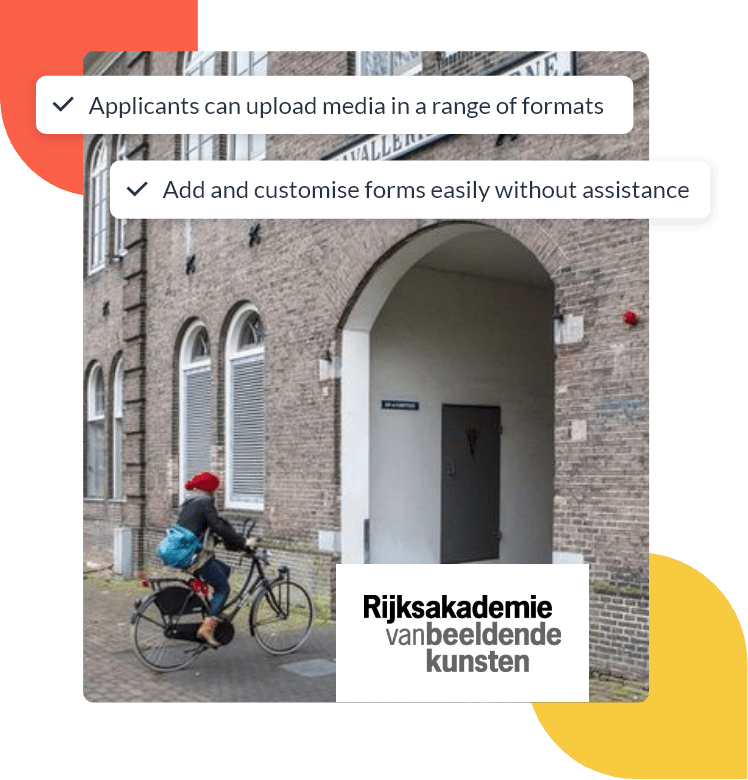Managing a media-rich process of admission

Rijksakademie discovered HEIApply by thinking beyond the practices of their own industry – and the result was an unexpected partnership in problem-solving.
Rijksakademie’s artists development programme, which is open to applications from artists who live across the globe and work in all mediums, has been growing in popularity. At the same time, the media artists create to capture and share their work is higher quality, often including video, and therefore file sizes have also grown considerably. This explosion of types and sizes of file caused Rijksakademie a substantial administrative burden that showed no signs of letting up – and so Zaza Versteeg, as project manager, decided to look for the means to make application processing much more efficient.
HEIApply stood out because, unlike their previous system, it was customisable by the administrators, and so flexible that it could scale. Their former system had been a bespoke development that, by the time it was ready to use, was already behind the curve of a rapidly changing landscape for media. Versteeg recognised that Rijksakademie’s application process, because of the concentrated time period involved and the volume of applications received, had more in common with that of schools and universities than anything like peers in arts and culture.
Thinking cross-sector to imagine greater efficiencies
HEIApply’s method of developing in partnership with a host of different sectors consequently bore fruit for Rijksakademie. Media uploads resulted in applicants no longer needing to send DVDs of work for administrators to comb through and check. In addition, the ability to view media within the system removed the need for transferring files by hard drive from place to place. Although Rijksakademie originally saw little need for the communication inbox in the system, preferring to use email, the inbox became invaluable, saving lots of time and also recording the communication on the applicants timeline, and so making it easy to see all correspondence and activity.
Insights gleaned from one sector can be easily mapped to another because HEIApply folds best practice straight back into future releases of the system in order to benefit all users. What the staff at Rijksakademie came to understand through their adoption of the system is the value in analysing workflow, moving from describing what administrators currently do to thinking about the problems each step is trying to solve. In that way, Rijksakademie were able to outline their major pain points and develop a streamlined process supported by an effective and efficient admission system.
The benefits of working together
The result for Rijksakademie is significant. In the last application cycle, processing time for applications halved, even though application numbers increased twenty five percent. Extra staff time meant that care and attention could be devoted to creating the perfect environment for the jury to select the right calibre of artists. In addition, the panel of jurors found the ability to see details of the media presented so useful that they now have it visible throughout the review process – and the best thing for Rijksakademie is how much control they have over making these iterative improvements to their processes.
For HEIApply, the value of working with Rijksakademie on their application process for such a highly regarded and selective programme is in having acquired a broader understanding of how sophisticated structuring of data can translate into a simple and effective system: the right data at the right moment in the process enables administrators, reviewers and applicants to concentrate on what matters.
See Rijksakademie’s recipe for success in our case study.



